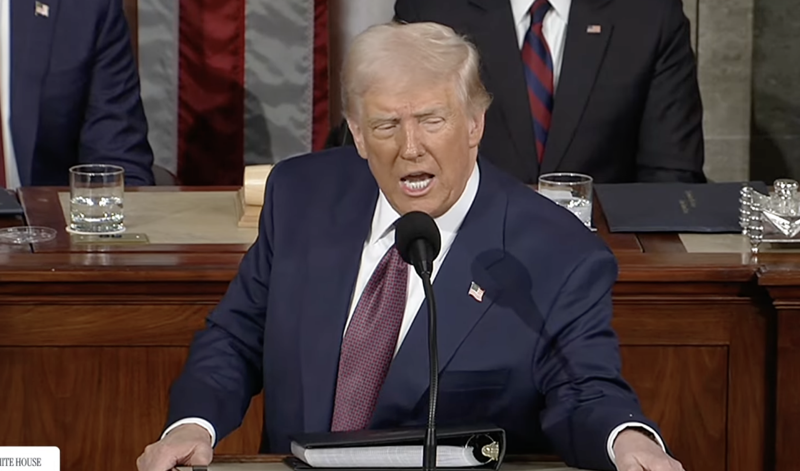The U.S. Supreme Court ruled Monday that a lower federal court doesn’t have jurisdiction in a lawsuit filed to prevent deportations of violent Venezuelan Tren de Aragua prison gang members illegally in the U.S.
The Supreme Court granted the Trump administration’s emergency request to intervene in a case challenging the deportations, and vacated a lower court’s temporary restraining orders that halted them.
“The Supreme Court has upheld the Rule of Law in our Nation by allowing a President, whoever that may be, to be able to secure our Borders, and protect our families and our Country, itself. A GREAT DAY FOR JUSTICE IN AMERICA!” Trump said in response.
In March, Trump issued an executive order invoking the Alien Enemies Act in response to already declaring that the U.S. was being invaded by criminal foreign nationals, including TdA members, The Center Square reported.
In response, a lawsuit was filed on behalf of five Venezuelans in the U.S. illegally, requesting a district court in the District of Columbia to halt their deportations. After nearly 300 Venezuelans were removed from the U.S. and sent to a maximum-security prison in El Salvador, a federal judge granted the request and issued two temporary restraining orders. The judge also ordered those removed be returned, which the Salvadoran president mocked, saying it was “too late,” The Center Square reported.
The judge argued the Trump administration was in defiance of a court order. The administration argued it wasn’t and appealed to the U.S. Supreme Court.
On Monday, the Supreme Court issued a three and a half page opinion, stating, “We grant the application and vacate the TROs. The detainees seek equitable relief against the implementation of the Proclamation and against their removal under the AEA. They challenge the Government’s interpretation of the Act and assert that they do not fall within the category of removable alien enemies. But we do not reach those arguments.”
Justice Brett Kavanaugh issued a separate concurring opinion.
Justices Sonia Sotomayor, Elena Kagan, Ketanji Brown Jackson and Amy Coney Barrett issued a dissenting opinion, arguing the administration’s actions were done “without any due process of law, under the auspices of the Alien Enemies Act, a 1798 law designated for times of war.”
When Trump declared an invasion at the southwest border and designated Mexican cartels and TdA as FTOs, he argued they were engaging in asymmetric warfare against Americans, The Center Square reported.
He took action after a record more than 1 million Venezuelans illegally entered the U.S. under the Biden administration, including TdA members who expanded criminal operations in at least 22 states including killing Americans, The Center Square reported.
The dissent also argues the Supreme Court intervening in the case “is as inexplicable as it is dangerous.
“Against the backdrop of the U. S. Government’s unprecedented deportation of dozens of immigrants to a foreign prison without due process, a majority of this Court sees fit to vacate the District Court’s order. The reason, apparently, is that the majority thinks plaintiffs’ claims should have been styled as habeas actions and filed in the districts of their detention. In reaching that result, the majority flouts well-established limits on its jurisdiction, creates new law on the emergency docket, and elides the serious threat our intervention poses to the lives of individual detainees.”
After the ruling, removal of Venezuelan TdA members illegally in the U.S. will continue.







